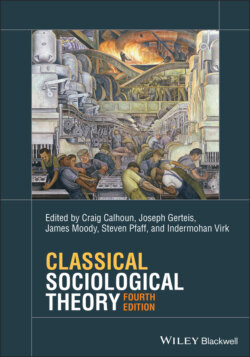Читать книгу Classical Sociological Theory - Группа авторов - Страница 20
Introduction
ОглавлениеClassical sociological theory shapes the discipline of sociology, but also all of modern social thought. It influences politics, economics, and legal decisions. Preachers refer to it in sermons, journalists in newspaper columns. It shapes how both experts and ordinary people think about race, gender, sexuality, family, community, nationalism, military service, business corporations, social movements, and response to emergencies. It enables us to see connections among different events, institutions, and trends. It helps us to see general patterns in social life. And it helps us relate personal life to society. This is important at all scales from interpersonal relations like love or friendship to large-scale patterns in economy, government, or culture.
Sociological theory helps us to see to what extent we can choose the conditions we live under. It helps us literally to judge what is possible and what is not, and what are the likely consequences of different courses of action. Sociological theory does not tell us what parties to vote for, what religion to profess – if any – or what moral values are right. But it does enable us to make systematic and informed judgments about what policies will promote our values and which will be likely to undermine them. It helps us to locate our personal experiences and shared projects in larger social and historical contexts. As C. Wright Mills put it: “Neither the life of an individual nor the history of a society can be understood without understanding both.”1
